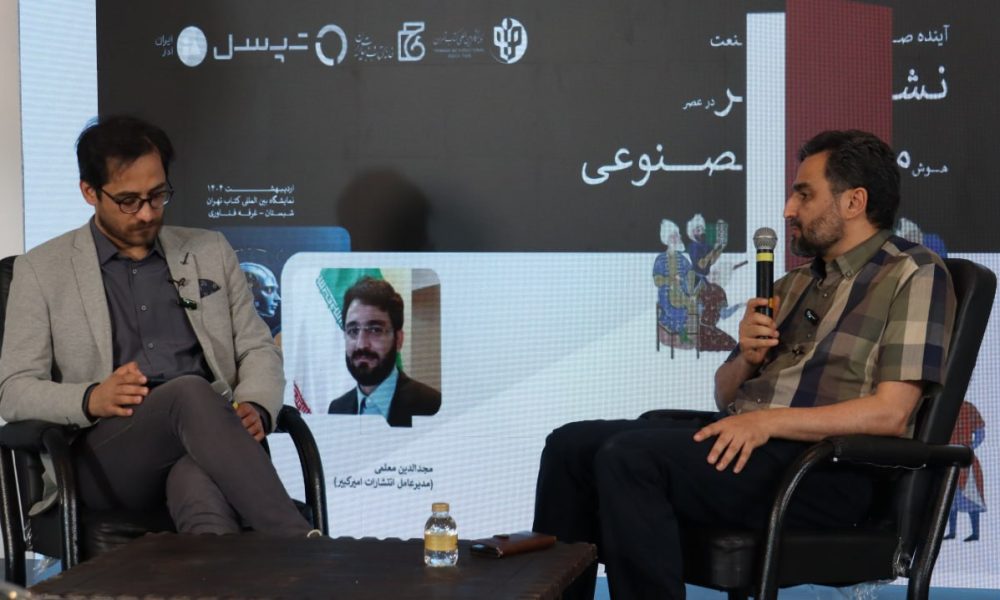A series of meetings on the publishing industry in the age of AI was held in the Publishing Technologies Hall at the 36th Tehran International Book Fair, attended by Majdoddin Moallemi, CEO of Amirkabir Publishing.
According to Ideaagency, Majdoddin Moallemi, CEO of Amirkabir Publishing, explained in a conversation with Sadegh Attarzadeh that the publishing field is faced with challenges in entering the digital world: “Currently, audio and digital books not only do not replace paper books, but they also add to the audience of a publication. Basically, we are faced with two different tastes. The publishing industry must take into account different tastes and develop its products accordingly.”
This book activist stated: “According to existing reports, the digital economy covers approximately 5 percent of the market economy, and there is still room for progress. Almost all electronic files of Amir Kabir Publishing’s books are available, and we also plan to develop audio versions of them.”
He explained how the country’s oldest publishing house, with 75 years of experience in Iran, operates: “We currently have 1,500 to 2,000 books live and in circulation, and Amir Kabir’s professional and stable audience and other audiences have good communication with us.”
The CEO of this publishing house noted: “We publish approximately 600,000 to one million copies of books per year. Naturally, we considered a type of audience needs assessment that requires the production and distribution of books with precise calculations so that they do not accumulate in the warehouse.”
He added: “AI is not a threat to the publishing industry. We have a reading class that used to read printed books and still does. If it was going to end, it would have ended by now, while new audiences are being added. We are not in conflict with the new space, we are definitely interacting to discover new audiences.”
Referring to one of AI’s capabilities, summarizing books, Moallemi said: “AI has given us the ability to summarize content. We have previously summarized books in the pocket books of Amir Kabir Publications, but a summary of a novel like War and Peace will never replace the original War and Peace, and both will have their own audience.”
Explaining why the publishing industry is not changing towards a digital and modern space, he said: “The structure of the publishing industry in Iran is old and backward. Its resources require that the production, distribution, and broadcast circles not be confused, and this has been the case since the past. Since the rules were not formed from the beginning, it has created distrust among classic publishers.”
This publishing activist pointed to another reason why publishers are not utilizing artificial intelligence, saying: “We can say that a brain that, regardless of the market and economic interests, provides publishing with practical information for monitoring and reporting management does not exist in the book field, and this is considered a weak point.”
“The publishing economy is a low-risk economy, in that it can disrupt its own market for a while to bring the marketing space into the digital space,” Moallemi added. “In other words, the publishing industry is stuck with its daily needs.”




No Comment! Be the first one.